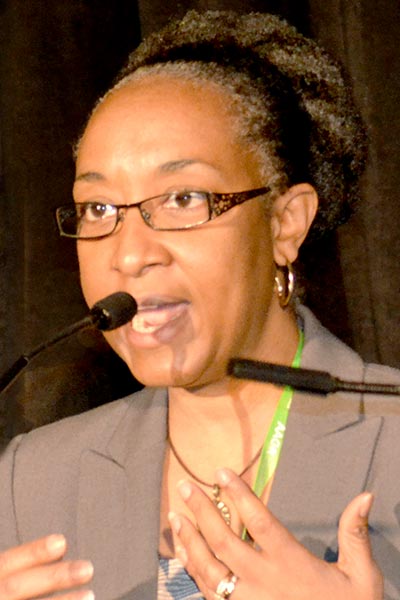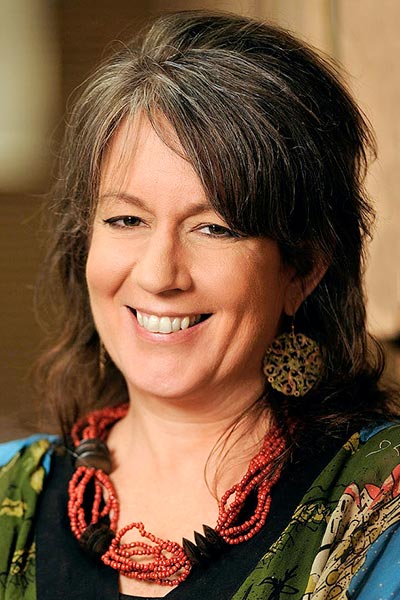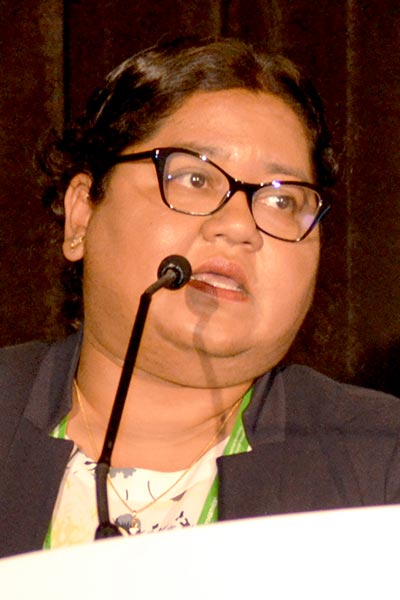Speakers call for a ‘health equity lens’ to be applied to implementation science
Disparities in cancer research and care persist despite recent attention on health equity in the U.S. and abroad.
During an Educational Session on Saturday, April 9, three speakers discussed how implementation science can be leveraged to address problems that have contributed to health inequities in cancer research and care. The session, Implementation Science: Efforts to Improve Cancer Health Equity, can be viewed on the virtual platform by registered meeting participants through July 13, 2022.

Camille C. R. Ragin, PhD, MPH, Fox Chase Cancer Center, served as chair of the session and explained why health equity should be a more prominent and central aim of implementation science. She said that putting “evidence-based” research into practice, for example, is often done based on incorrect, potentially dangerous assumptions, such as the notion that interventions that have been proven effective can be adapted to fit any population.
“Viewing everyone equally assumes, incorrectly, that all population groups have similar circumstances, resources, and opportunities for achieving good health,” Ragin said. “Without a health equity lens, the application of evidence-based interventions to the general population may have an unintended consequence of increasing health inequities for some groups who were less likely to be reached, or reached effectively.”
Among the challenges of increasing health equity in the context of implementation science, she said, are the inherent limitations of the evidence base.
“Too few evidence-based interventions adequately include a systems approach or address upstream social determinants,” Ragin said. “The lack of diversity in study samples and settings limits applicability of research findings in ways that unintentionally benefit some populations more than others, potentially exacerbating health inequities.”
In order to achieve equitable implementation, Ragin said interventions for vulnerable populations must be designed with implementation in mind.
“Examine community realities from the outset, along with root causes of the needs and barriers an intervention seeks to address, including historical and structural racism,” she said. “Involve the people with the most at stake in the program in selecting programs, policies, and approaches that will be relevant to their communities.”

Taking a systems approach to designing implementation research can illuminate high-leverage, cross-cutting strategies to address health inequities, said Patti E. Gravitt, PhD, MS, NCI Center for Global Health.
“Our interventions are often being implemented into complex adaptive systems, meaning they are difficult to understand or predict and they are dynamic, continually moving, and changing. These conditions demand a systems approach to implementation,” Gravitt said.
She outlined a systems methodology for addressing complex systems with a participatory action research model as the key for engaging all relevant stakeholders in developing both the intervention and implementation plan.
“Implementation of a health intervention involves people and their organizations. People have agency, and it’s important to consider all the stakeholders in designing an implementation plan,” Gravitt said. “There will always be tension between altruistic behavior directed to group aims and the selfish pursuit of personal agendas. These are never absent from human affairs, so it’s important to engage in group planning in a no-judgement zone.”

Prajakta Adsul, MBBS, MPH, PhD, University of Mexico, echoed the importance of community engagement in pursuing health equity through implementation science for cancer prevention and control.
“Community engagement in implementation science means understanding and taking into consideration where the intervention is implemented, the community that the intervention recipients belong to, as well as the community that the ‘implementers’ belong to,” Adsul said. “We should look at implementation science as an opportunity to include equity in research processes and outcomes.”
Health equity is foundational for the field of implementation science, she said, but is not always explicit.
“It requires reflection, accountability, and focus,” Adsul said. “It’s critical to consider things like structural racism and social determinants of health as part of the context and root causes of inequities, making sure we’re not reinforcing health inequities through implementation in our disciplines and in our research.”
[sub-post-content]
